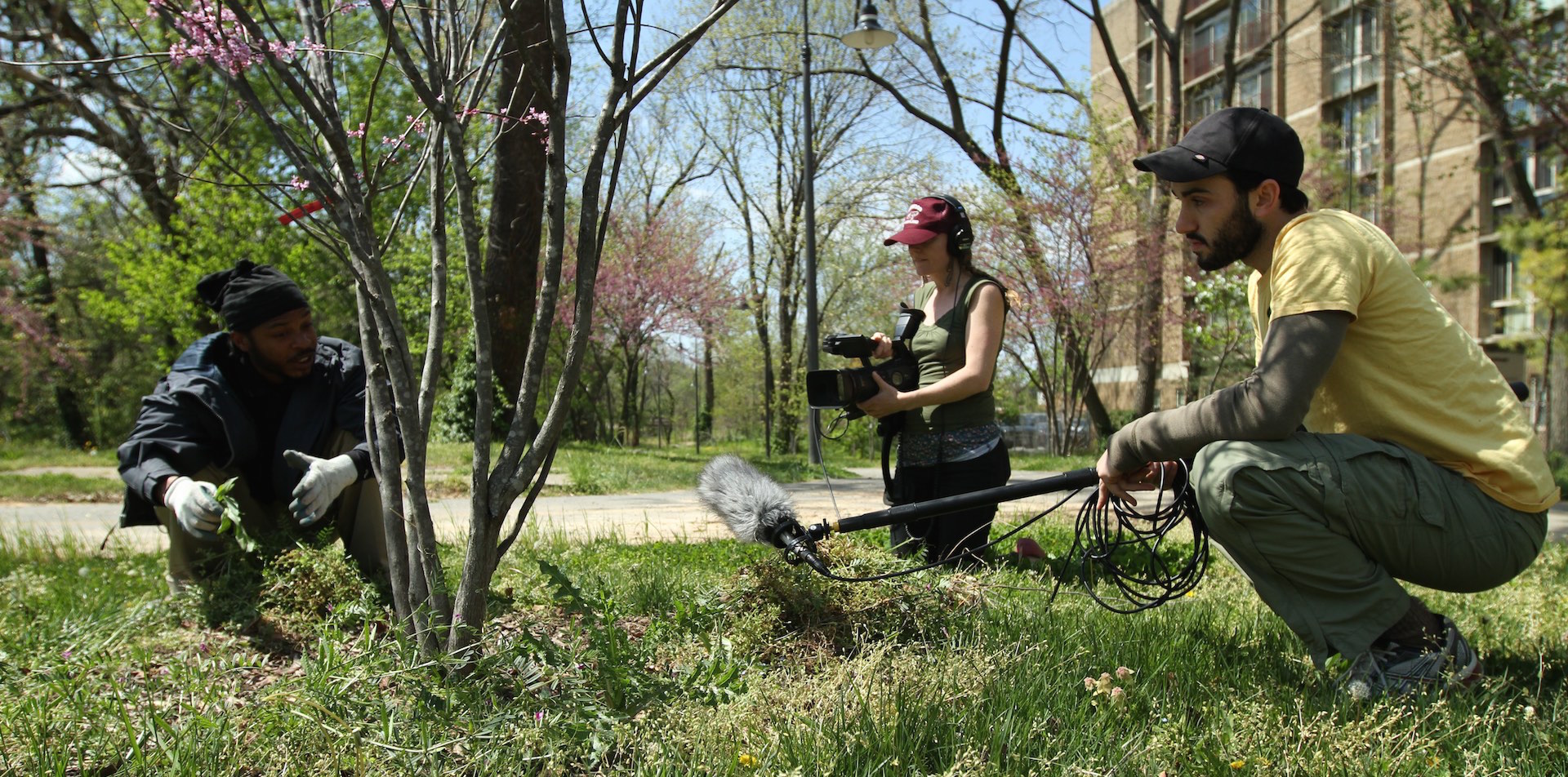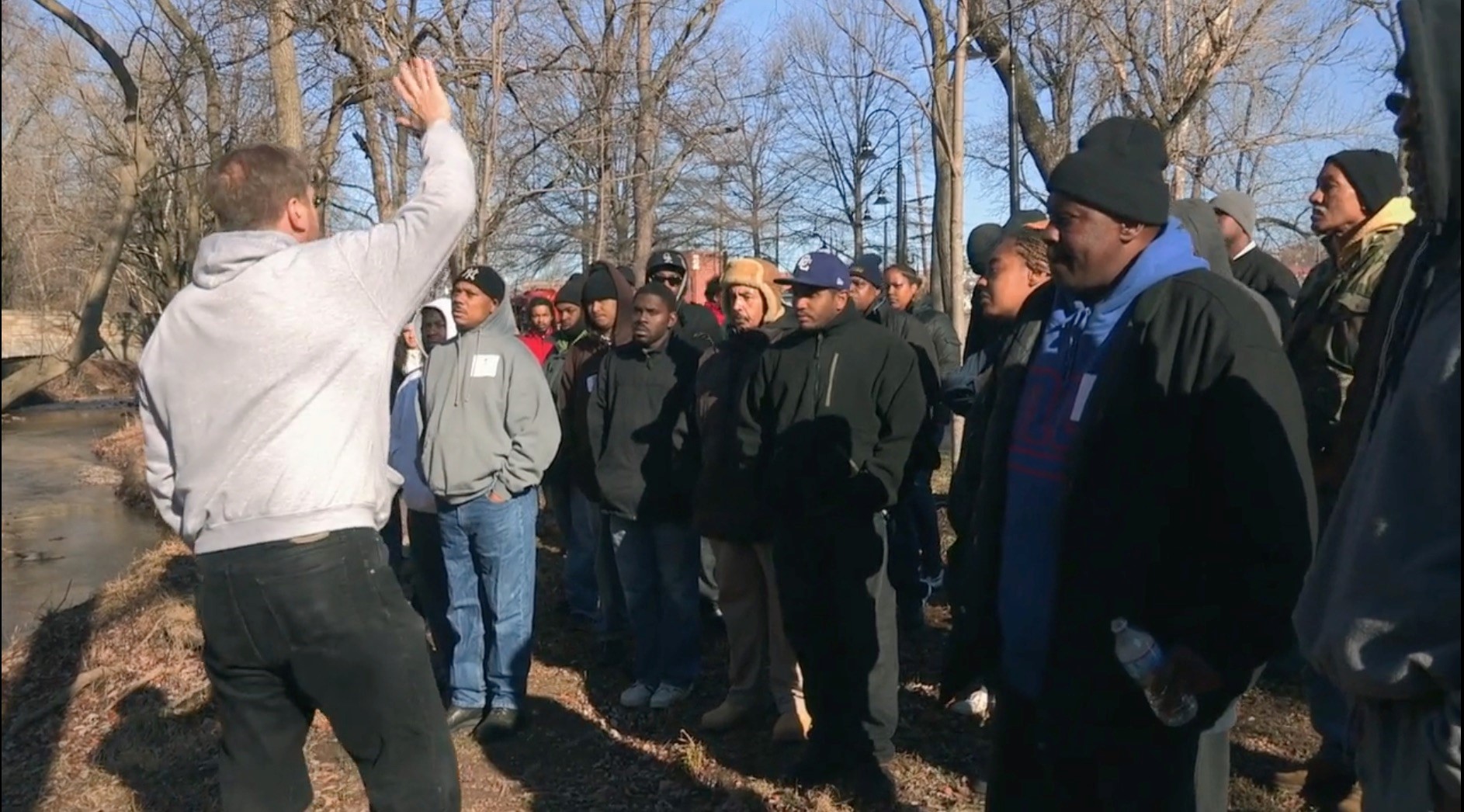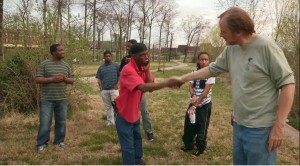 Since 2003, the Catalogue has relied on the art of storytelling to raise awareness about the work of our 350+ nonprofits. Whether through our print Catalogue, website, or events, we use storytelling to bring to life each charity’s programs, and impact. Spreading the word about our charities work is central to our mission, and we’re always looking for new and innovative ways to do this.
Since 2003, the Catalogue has relied on the art of storytelling to raise awareness about the work of our 350+ nonprofits. Whether through our print Catalogue, website, or events, we use storytelling to bring to life each charity’s programs, and impact. Spreading the word about our charities work is central to our mission, and we’re always looking for new and innovative ways to do this.
In a recent blog post, our friends at Meridian Hill Pictures tackled the topic of authenticity in storytelling, and how this topic was reflected in their feature film, CITY OF TREES. The film follows the stories of trainees and staff at Washington Parks and People (’14-’15) as they navigate the “inspiring but messy world of job training, and the roadblocks change makers face in urban communities everyday.” In conjunction with the film, Meridian Hill Pictures is launching a regular dialogue series titled Authentic Storytelling Moves People, in which they hope to bring together nonprofit leaders, independent filmmakers, and community members to talk openly about how they can all embrace more authentic storytelling to strengthen our community. Below is an excerpt from their blog:
“Whether in narrative or documentary, moving or still pictures, newspapers or tweets, we’re interested in exploring ways that society can elevate and reward authenticity, so that honest conversations are not withheld from the public sphere out of fear of losing funding, donations, support, or trust. We do not see authenticity as a sign of weakness rather, it requires courage. What if funders asked their grantees to demonstrate authenticity alongside impact? What if the public demanded authenticity as a form of accountability from public and private institutions? What if we all had the courage to create and tell more authentic stories?
In our first feature film, CITY OF TREES, we’ve attempted to embrace these values through an honest, character-driven story that challenges audiences to think deeply about the triumphs and struggles in making a long-term social impact within a non-profit organization… CITY OF TREES thrusts viewers into the inspiring but messy world of job training and the roadblocks changemakers face in urban communities everyday. Telling this kind of story required all parties — filmmakers, participants, funders, audiences — to embrace a certain unpredictability, lack of control, and reality that the ‘message’ would never be as perfectly conveyed through a people-centered story as through a tightly-crafted grant report, speech, tweet or fundraising video. Our hope has been that this kind of people-centered, reflective storytelling helps everyone to develop a more nuanced understanding of the issues, a meaningful connection to the stakeholders as individual people and not statistics, and a more-informed investment in the potential of possible solutions.”
Interested in checking out City of Trees? Join Meridian Hill Pictures at the DC Environmental Film Festival for the premiere of CITY OF TREES (or check the CITY OF TREES website for other festival screenings).

In anticipation of the screening, we caught up with Lance Kramer, Executive Director at Meridian Hill Pictures, to learn more about how the film came to fruition, and the potential it has to impact the nonprofit sector.
What conversation started Meridian Hill Picture’s involvement with Washington Parks and People?
Lance: In building a relationship, particularly one between a filmmaker and a subject, there are so many conversations that play a role…. more that I can count. The evolution of our relationship started when we first moved into the Josephine Butler Parks Center, continued through visiting the Corps members’ work site at the North Columbia Heights Green, a participatory video training we facilitated with the Corps members, then the bulk of the filming with all of the participants to follow the story of the grant. We realized that there was something really interesting and complex going on in both the spaces where the Corps was working, in the lives on the people and the organization.
What role do you see the film playing in the nonprofit space?
Lance: I think there’s a lot of interest, concern and confusion about embracing storytelling in the nonprofit community. What is storytelling and what does it mean for a nonprofit? There isn’t just one right answer. I hope that one outcome of the people in the film placing their trust in us and allowing themselves to be vulnerable, is to help others understand how hard change can be and allow others in the field to take a deep breath and feel ok with sharing the struggles that we all face. I hope others see that storytelling can be a powerful place to have a meaningful dialogue around successes and challenges, and that honesty can have a positive impact on the organizations serving our community. I hope the film shows that the march towards truth requires people to have trust in each other, the storytellers, and in the potential of honest stories to move people.
 If you could have one group of people see the film and talk about it, who would that be?
If you could have one group of people see the film and talk about it, who would that be?
Lance: Only one group? I think nonprofit funders are an important audience for this film because they have the power to change the mechanics of how programs can impact our communities. We hope this film can help people build stronger relationships and understanding between people at the top, the staffs who design and implement programs, and the community members who are most closely impacted by programs. We can only benefit by strengthening communication and empathy for the struggles and needs all of these stakeholders face.
If every person who sees the film can walk away asking themselves one question, what should that question be?
Lance: Where do I fit in? This film isn’t about “other” people- it deals with issues that affect all of us. I hope people watching the film take a moment to look inward, to see that we are all connected and part of a system. Through the film and this kind of storytelling, maybe, it can help people think about where they fit into that system, and what each one of us can be doing or thinking differently in order to increase positive outcomes in our communities.
Check out the CITY OF TREES this week at the DC Environmental Film Festival (or visit the CITY OF TREES website for other festival screenings)!
